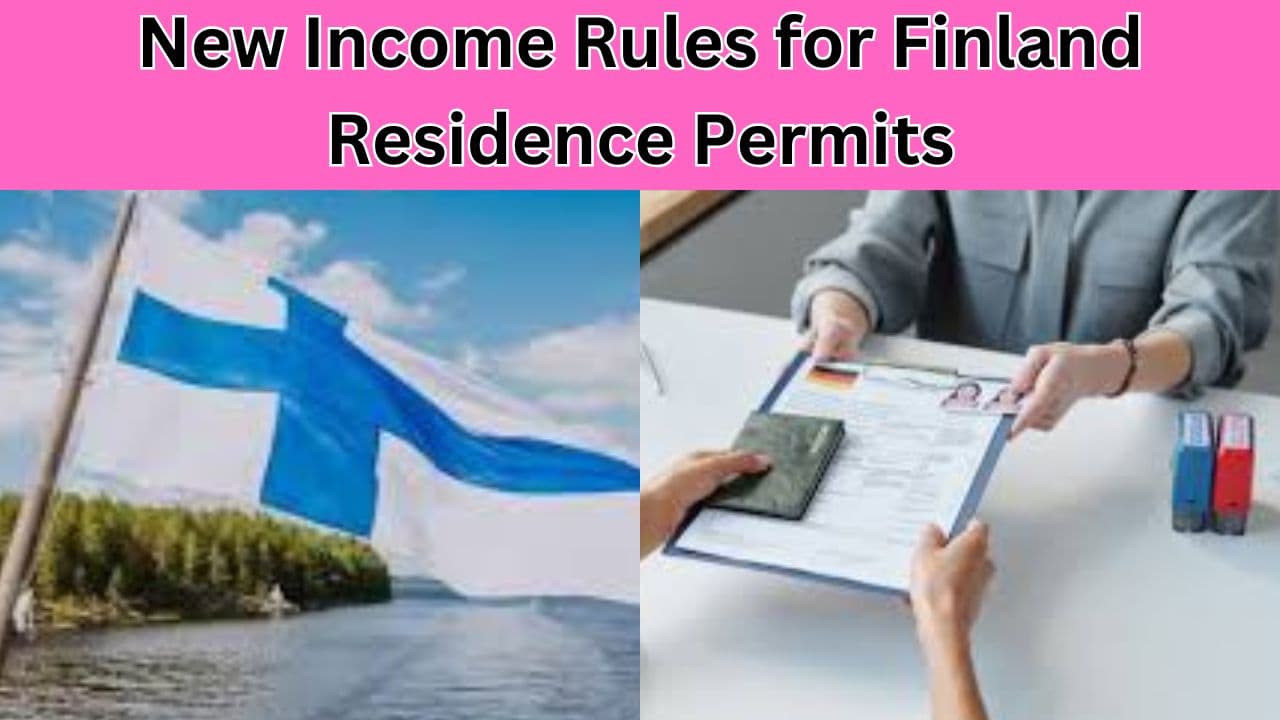European Union countries are altering their Blue Card restrictions to attract highly competent non-EU workers. Greece, Estonia, Italy, Slovakia, and Sweden have made modifications to simplify application processes, lower wage limits, and prolong validity periods, making it simpler for qualified workers to contribute to their economies.
Several European Union (EU) member states recently modified and simplified their EU Blue Card requirements to recruit more international experts. Greece, Estonia, Italy, and Slovakia made significant modifications in 2024, and Sweden plans to lessen its conditions soon.
These measures are part of a larger effort to simplify the process of allowing highly qualified non-EU professionals to live and work in the EU.
Check Also: EU Golden Visas: Struggles in the North and West, Success in the South and East
What is the EU Blue Card?
The EU Blue Card is a residency and work card intended for highly skilled non-EU citizens. It allows holders to live and work in the majority of EU nations with the possibility of obtaining permanent residency. Each EU member state has its own set of criteria and laws can be modified to match local circumstances.
Changes to the EU Blue Card Rules in 2024:
Greece: More Accessible for Short-Term and Visa-Free Travellers
Greece has altered the EU Blue Card regulations significantly to draw in more highly qualified international workers. From 5 June 2024, visitors entering Greece without a visa or short-term Schengen visa will be eligible to apply for an EU blue card.
Previously, a pre-screening process was required for all applicants. But the new guidelines allow for that choice. It is still advised to finish the pre-screening, though, to prevent delays or application rejection.
Key Changes:
- Permits holders of short-term, visa-free Schengen visas to apply for an EU Blue Card.
- Makes pre-screening voluntary as opposed to required.
- The renewal charge is €450, while the application fee is €300.
- A two-year EU Blue Card is valid.
Impact: By improving accessibility and lowering administrative barriers, these modifications increase Greece’s appeal as a destination for highly qualified international workers. Greece hopes to increase its skilled labor force and foster economic growth by loosening entry requirements.
Estonia Promotes Professional Experience Over Academic Qualifications:
Estonia amended its EU Blue Card standards in April 2024 to prioritize professional experience over formal educational qualifications. This reform permits foreigners with 5 years of relevant professional experience to apply for the EU Blue Card, increasing eligibility beyond university graduates.
Estonia also changed employment rules, making it easier for cardholders to switch jobs and handle spells of unemployment.
Key Changes:
- Simplifies the procedure of changing jobs without having to meet labor market testing criteria, but with the necessity to notify the present employer.
- Rather than requiring a university degree, five years of professional experience are recognized.
- Allows for up to three months of unemployment for cardholders who have been in the nation for less than six years, and up to six months for those who have been in for more than two years with an EU Blue Card.
Impact: These revisions broaden eligibility for the EU Blue Card, attracting a more diverse variety of competent individuals. Estonia improves its appeal to non-EU people by respecting professional expertise and providing job flexibility.
Italy: Application Online System for Employers:
Italy has implemented an online application system for firms to request EU Blue Cards for foreign workers, thereby expediting the hiring procedure for highly qualified non-EU citizens. This digital strategy promises to make it easier and faster for Italian businesses to hire competent personnel in a variety of industries. The minimal wage for an EU Blue Card in Italy is roughly €24,790.
Key Changes:
- Employers can now apply for EU Blue Cards online.
- Simplifies the process of employing highly skilled non-EU nationals.
- The minimum wage for EU Blue Card holders is €24,790.
- There are no initial or renewal fees for the EU Blue Card.
Impact of Changes: By removing paperwork and speeding up the recruiting process, the online approach enhances Italy’s ability to draw in foreign talent. Employers and job seekers alike gain from this simplified approach which expedites the entry of qualified non-EU experts into the Italian labor market.
Slovakia: Lower Salary Requirements and Extended Validity:
In response to labor shortages Slovakia revised its EU Blue Card criteria which will go into effect on July 15, 2024. The validity of the EU Blue Card has been increased from four to five years and the minimum salary criterion has been reduced to 1.2 times the national average salary. These measures aim to recruit more foreign-skilled workers by extending eligibility and providing more competitive situations.
Key Changes:
- From four to five years, the EU Blue Card’s validity has been increased.
- Reduced the minimum salary criterion to 1.2 times the national average income.
- Facilitates professional development opportunities for competent international workers.
Impact of Changes: By extending residence and lowering wage limits, Slovakia becomes a more enticing destination for highly trained professionals. This strategy seeks to meet labor market needs and attract a broader spectrum of skilled professionals to assist fill crucial shortages in Slovakia’s workforce.
Sweden: Planned Salary Reductions:
Sweden plans to reduce the salary requirements for EU blue card holders by 1.25 times. This will improve the application process for qualified professionals. and facilitating the qualification of EU blue card holders, expatriates and current license holders.
Key Changes:
- Plans to lower the minimum wage threshold from 1.5 to 1.25 times the average monthly salary.
- The new monthly barrier will be €4,300, down from €5,200.
- Simplifies the transition to the EU Blue Card for holders of Swedish residency and work permits.
- Facilitates procedures for persons possessing EU Blue Cards issued by other EU countries.
Impact: Sweden’s planned adjustments are likely to attract more international talent by decreasing pay requirements and making transitions easier. These changes improve Sweden’s ability to meet labor market demands, making it a more appealing destination for highly trained workers.
Eligibility Criteria for the EU Blue Cards:
To be eligible for an EU Blue Card, candidates must meet various conditions:
- Showcase greater professional qualifications.
- Be employed in a paying job.
- Earn a minimum yearly gross wage of 1.5 times the national average, unless a lesser barrier applies.
- Have a job contract that is valid for at least one year.
- Hold all necessary travel documentation, including health insurance.
- Meet the legal requirements for practicing the profession if it is regulated in the host nation.
Benefits of the EU Blue Card:
- Work Authorisation: The EU Blue Card allows the holder to work in any EU member state.
- Family Reunification: Blue Card holders can bring their families into the EU.
- Path to Permanent Residency: After a term of residence, Blue Card holders may be eligible for permanent residency.
- Free Movement: Blue Card holders are free to travel across the Schengen area.
Conclusion:
The EU Blue Card provides an excellent chance for skilled persons seeking jobs and a new life in Europe. With recent simplifications implemented by numerous member states, obtaining this visa has become easier than before.




One thought on “EU Blue Card: How European Countries Are Attracting Global Talent with New Entry Rules”